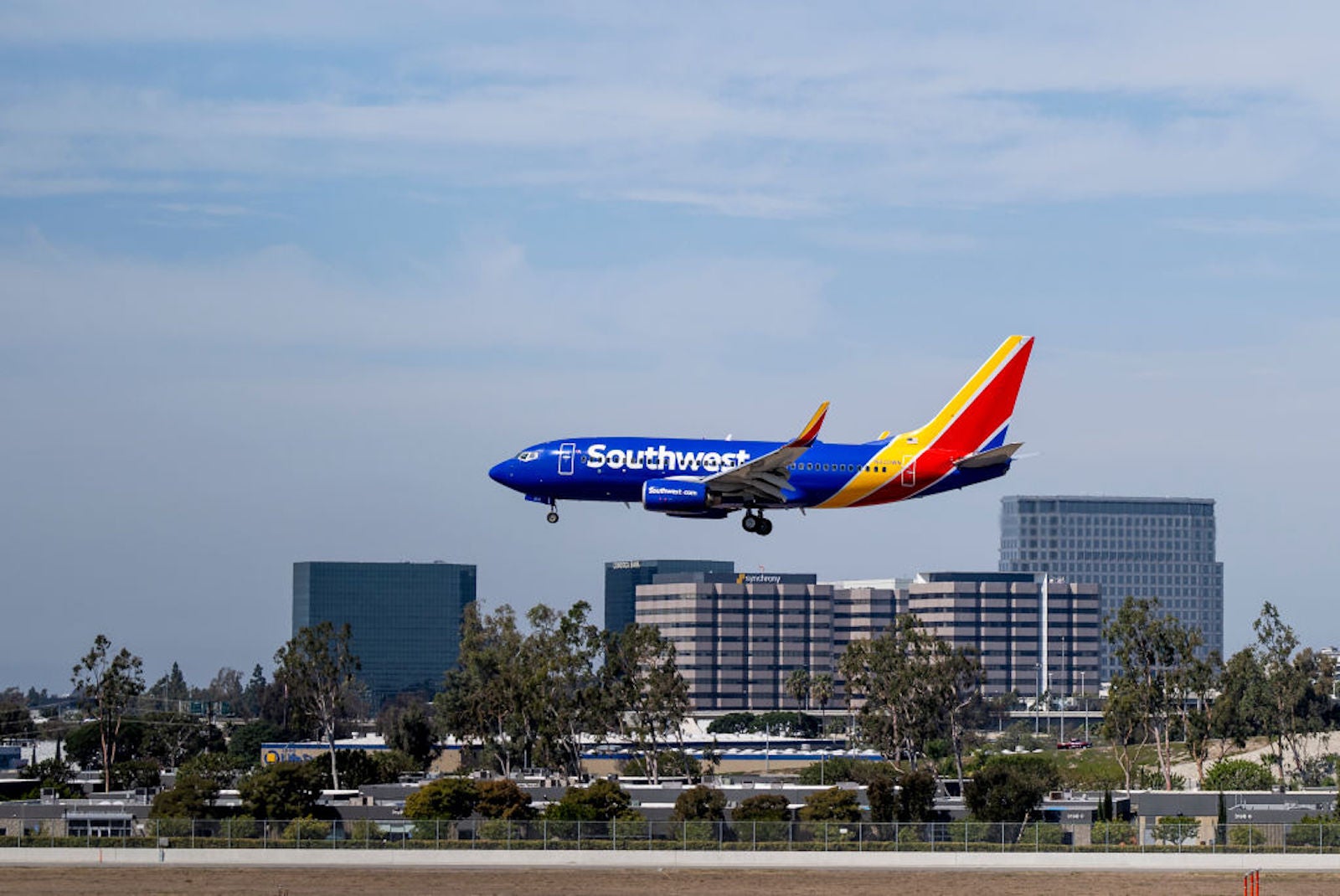‘We messed up’: Southwest grilled by Senate committee over holiday meltdown

The public scrutiny over the Southwest’s holiday meltdown hasn’t let up.
Southwest executive Andrew Watterson faced lawmakers in a Senate panel on Wednesday over the carrier’s operational fiasco that led to the cancellation of nearly 17,000 flights, leaving approximately one million passengers stranded during the winter holidays.
Watterson, who is the carrier’s chief operating officer, immediately apologized for the incident before the Senate Commerce Committee, saying Southwest was “deeply sorry.”
“Let me be clear. We messed up,” he said. “We did not have enough winter operations resiliency.”
Want more airline-specific news? Sign up for TPG’s free biweekly Aviation newsletter
Under pressure from Congress, Watterson attributed the carrier’s December meltdown to their poor winter operations.
Consequently, Southwest plans to spend more resources on de-icing trucks and other technology systems to improve its winter operations. However, it is unclear how much this initiative will cost the airline.
“We believe our winter operations resiliency was the root cause and that will take longer to address and so we will focus on that for the bulk of our time,” Watterson said.
Watterson added that Southwest plans to invest $1.3 billion into updating its aging IT infrastructure.
Sign up for our daily newsletter
He said the airline is slated to introduce new software to its crew scheduling system on Friday that would help prevent the scheduling issues that partly led to their issues.
Building back schedules: Southwest Airlines adds 5 new routes and will restore 16 more that had been cut
The hearing also included testimony from Casey Murray, the president of the Southwest Airlines Pilots Association, who said that pilots had warned Southwest for years about its outdated technology.
“Those who do not learn from history are doomed to repeat it. Southwest has a history of repetition,” Murray said. “Unfortunately, despite many opportunities, Southwest airlines management did not listen to its pilots and frontline employees who saw this meltdown coming.”
Senators grilled Watterson on pilots sounding the alarm about the antiquated technology, but the Southwest executive couldn’t answer why the airline ignored the warning signs, instead focusing on investments into new technology and better winter equipment.
From Dec. 21 to Dec. 31, Southwest canceled nearly 17,000 flights as it failed to recover from winter storm Elliott. While other airlines successfully restored their operations shortly after the storm passed, Southwest’s outdated technology, along with crew mismanagement, culminated in a full-blown operational meltdown that lasted more than a week.
Per Watterson, Southwest did not know where its crews were and the carrier could not even contact some of its pilots or flight attendants during the episode, with some crews remaining out of contact for up to 17 hours, according to the testimony. With many passengers stranded, many lost their luggage and couldn’t reach customer service agents to rebook their flights. Approximately 200 bags remain unclaimed.
As a result of the fiasco, Southwest began reimbursing all impacted passengers plus an additional 25,000 Rapid Rewards points. Nearly 11,000 reimbursement cases remain pending, per Watterson.
The meltdown also resulted in major financial losses for Southwest— to the tune of $220 million quarterly loss during the fourth-quarter earnings. The airline estimated the mass cancellations cost it $800 million.
The Department of Transportation is also investigating Southwest for the holiday debacle to see if the carrier’s flight schedules were unrealistic.
Where’d that flight go? Wondering what happened to your favorite Southwest route? Here’s what to know
And Southwest’s operational mess sparked renewed calls in Washington to impose more regulations on the airline industry.
Last week, Democratic Sens. Richard Blumenthal (Connecticut) and Edward Markey (Massachusetts) reintroduced legislation that would expand protections for passengers in the event of operational meltdowns or flight cancellations and delays.
Sen. Maria Cantwell (D-Washington), chair of the Commerce Committee, also pressed for consumer protections.
“Doing better also means making sure that we’re not going to give consumers the short end of the stick,” she said.
However, Republicans have not been so keen to impose regulations. Sen. Ted Cruz (R-Texas), the committee’s ranking member, argued further regulating the airline industry would reduce airline service and increase fare prices.
“The Department of Transportation now plans to investigate the sensibility of the entire schedule, armchair quarterbacking the scheduling and operations of an entire industry,” Cruz said. “That’s just foolish.”
Additional reporting by Caroline Tanner.
Related reading:
